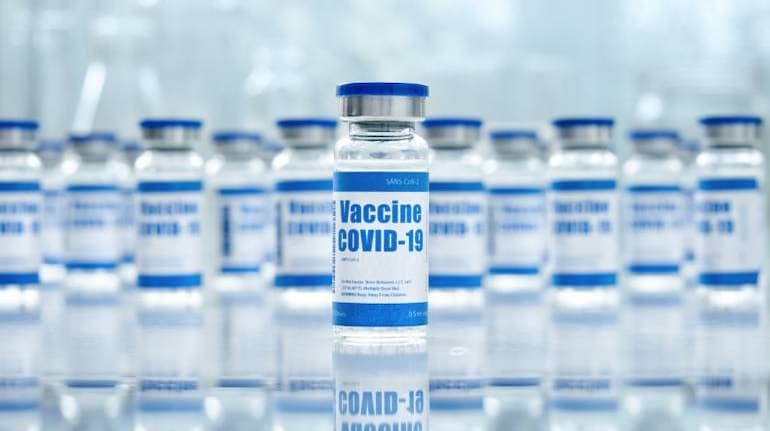



A study in UK has found that alternating doses of the Oxford-AstraZeneca and Pfizer-BioNTech vaccines generate robust immune responses against the SARS-CoV2 spike IgG protein.
The results show that both the mixed schedules of AstraZeneca and Pfizer jabs, when given at a four-week interval, induced an immune response that is above the AstraZeneca vaccine. Canada has allowed people who got AstraZeneca vaccine, to take Pfizer and Moderna vaccines. The Center for Disease Control in January allowed a mix and match of the Pfizer and Moderna vaccines — both mRNA jabs under exceptional circumstances.
Experts see the data as encouraging, but call for more such studies on mix and matching vaccines to find out which combination works the best and with least side-effects.
Please read here to know more about mixing and matching of COVID-19 vaccines
Here is what different experts are saying about mixing and matching of vaccines. Read excerpts:
Dr Soumya Swaminathan, Chief Scientist at the World Health OrganizationThere is an emerging data particularly looking AstraZeneca and Pfizer vaccine, because those are the vaccines that are widely used globally. There are some studies mostly conducted in Europe that show that if you use Oxford-AstraZeneca vaccine followed by Pfizer-BioNTech vaccine - that there is increase in reactogencity and the antibody response is little higher- which is good. The data now exists to show that if somebody who gets first dose of AstraZeneca vaccine can get Pfizer as the second.
It's safe, it is immunogenic and it results in good antibody response. It should result in good efficacy, and we are waiting for the data on other vaccine combinations. It's an important area for research.
Dr Randeep Guleria, Director of All India Institute of Medical Sciences - DelhiMixing and matching of vaccines in the past is known as heterologous prime boost where you give two different vaccines- one as prime boost and another as booster. It has been tried and known to be effective against Ebola. There are studies in UK and Spain. The data that is available suggest that the vaccine is more reactogenic, it does lead to higher side effects. In future you may be able to mix and match the vaccines, we need more data.
Some preliminary studies from Spain and UK indicated that vaccinating people with both the Oxford–AstraZeneca and Pfizer–BioNTech COVID-19 vaccines produces a potent immune response against the virus SARS-CoV2.
A trial of more than 600 people announced in an online presentation on 18 May 2021 was the first to show the benefits of combining different Coronavirus vaccines. Another study conducted by the University of Oxford, the Office of National Statistics (ONS) and the Department for Health and Social Care (DHSC) stated promising medical outcomes on mixing vaccines.
This study was particularly based on understanding the impact of vaccination on antibody responses and new infections in a large group of adults from the general population aged 16 years and older.
This study revealed that 21 days after a single dose of either Oxford-AstraZeneca or Pfizer-BioNTech vaccines (with no second dose), the rates of all new COVID-19 infections had dropped by 65%, symptomatic infections by 72% and infections without reported symptoms by 57%. This is good evidence as this study involved analysis of 1,610,562 test results from the nose and throat swabs taken from 373,402 study participants between December 1, 2020 and April 3, 2021.
Similarly, another study published in the medRxiv also highlighted that the vaccines also appeared to reduce the risk of contagion. These studies highlighted that mixing and cocktailing of vaccines help in achieving the desired immunity among people and that it covers most variants of concerns (VOC).
In keeping with the evidence from the other parts of the world which seem promising, our Indian researchers may set forth to find more evidence for the country. It is yet to be seen if scientists and researchers, will begin trials to test the safety of different vaccines (which currently have emergency use authorization in the country). Going forward the trials may also include jabs that are in the pipeline.
Dr Gagandeep Kang, leading vaccine expert and Professor at the Christian Medical College (CMC) — VelloreIn principle, yes, and as demonstrated by UK and Spanish studies, mixing and matching may have some benefits. But we need such studies for all kinds of vaccines. We do not expect major side effects.
Dr Vighnesh Naidu Y,Consultant Physician,Yashoda Hospitals, Hyderabad Mixing of vaccinations is a debatable topic these days, and at this point in time mixing of the first and the 2nd dose of vaccine is reserved for exceptional cases such as individuals who come from a country where the vaccine brand was different or due to the non-availability of the primary vaccine for the 2nd dose, which is the case in India for certain vaccines, depending on their supply and demand.
Studies are under way internationally to ascertain the efficacy of this methodology, but until we have further clarity on this subject mixed vaccines must be administered only under exceptional circumstances and as per a physicians advise only.
Discover the latest Business News, Sensex, and Nifty updates. Obtain Personal Finance insights, tax queries, and expert opinions on Moneycontrol or download the Moneycontrol App to stay updated!
Find the best of Al News in one place, specially curated for you every weekend.
Stay on top of the latest tech trends and biggest startup news.